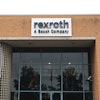More than two decades after its discovery, Oregon State University recently began licensing a patented polymer that could transform production of dairy products and other materials.
The university's commercialization office reached a deal with a global leader in dairy starter cultures for distributing Ropy 352, a polymer first isolated in an OSU lab in the early 1990s that rapidly thickens milk.
Ropy 352 is generated by a natural bacteria and could offer an alternative to other polymers like xanthum gum, a common food thickener that's produced by a bacteria known to be a plant pathogen.
The OSU polymer, by contrast, appears to give fermented foods a thick, creamy texture and slightly sweet property while adding probiotic characteristics, which are through to provide numerous health benefits.
OSU estimated the global market for those varieties of polymers at nearly $7 billion.
“There are actually very few new, non-disease-causing bacterial strains that produce unique polymers with characteristics desirable and safe for food products,” said OSU microbiologist Janine Trempy.
Ropy 352 could initially be used in sour cream, yogurt, kefir, buttermilk, cream cheese and soft cheeses, but the polymer also thickens non-fat milk, lactose-free milk and dairy alternatives such as coconut milk and rice milk.
The material could eventually be used in pharmaceuticals, supplements, fruit juices, cosmetics and personal care products.
New Polymer Could Bolster Food's Texture, Taste, Health Benefits
More than two decades after its discovery, Oregon State University recently began licensing a patented polymer that could transform production of dairy products and other materials.
Jun 15, 2015
Latest in Operations






















